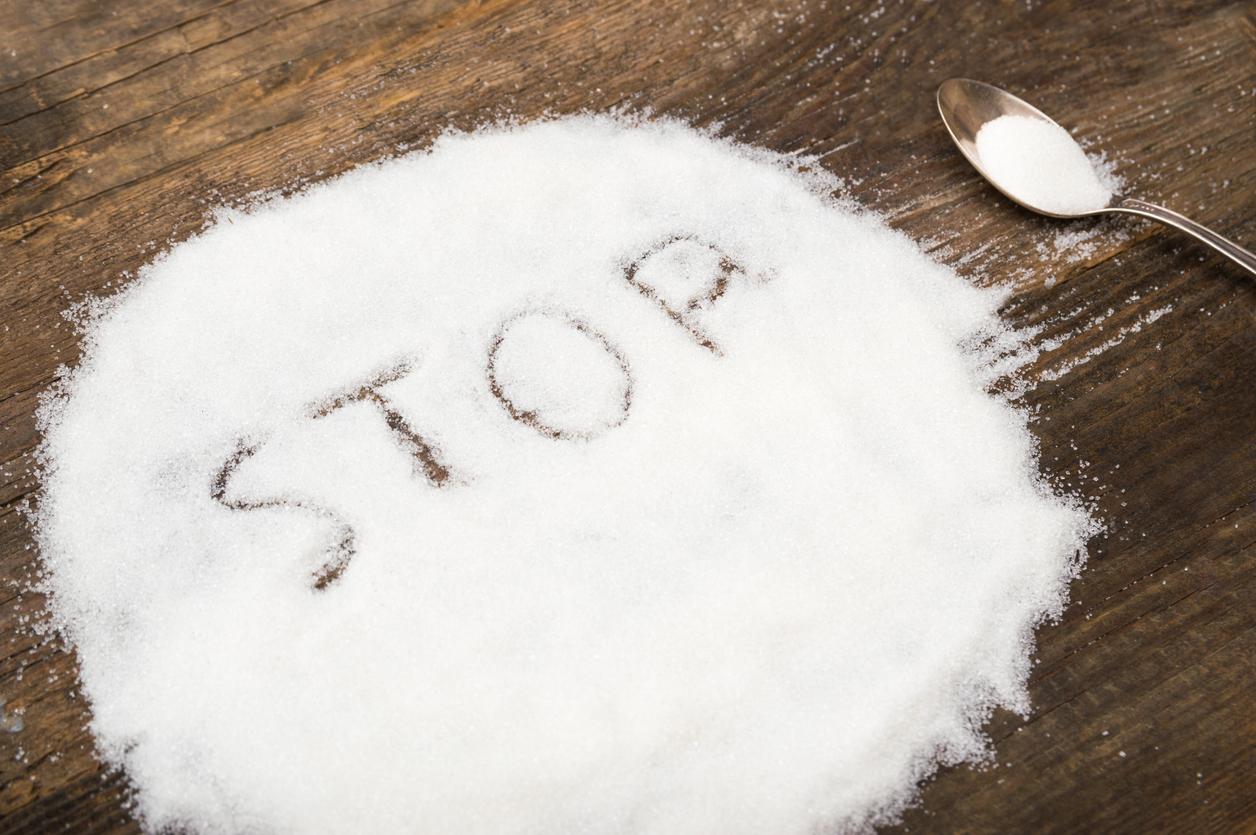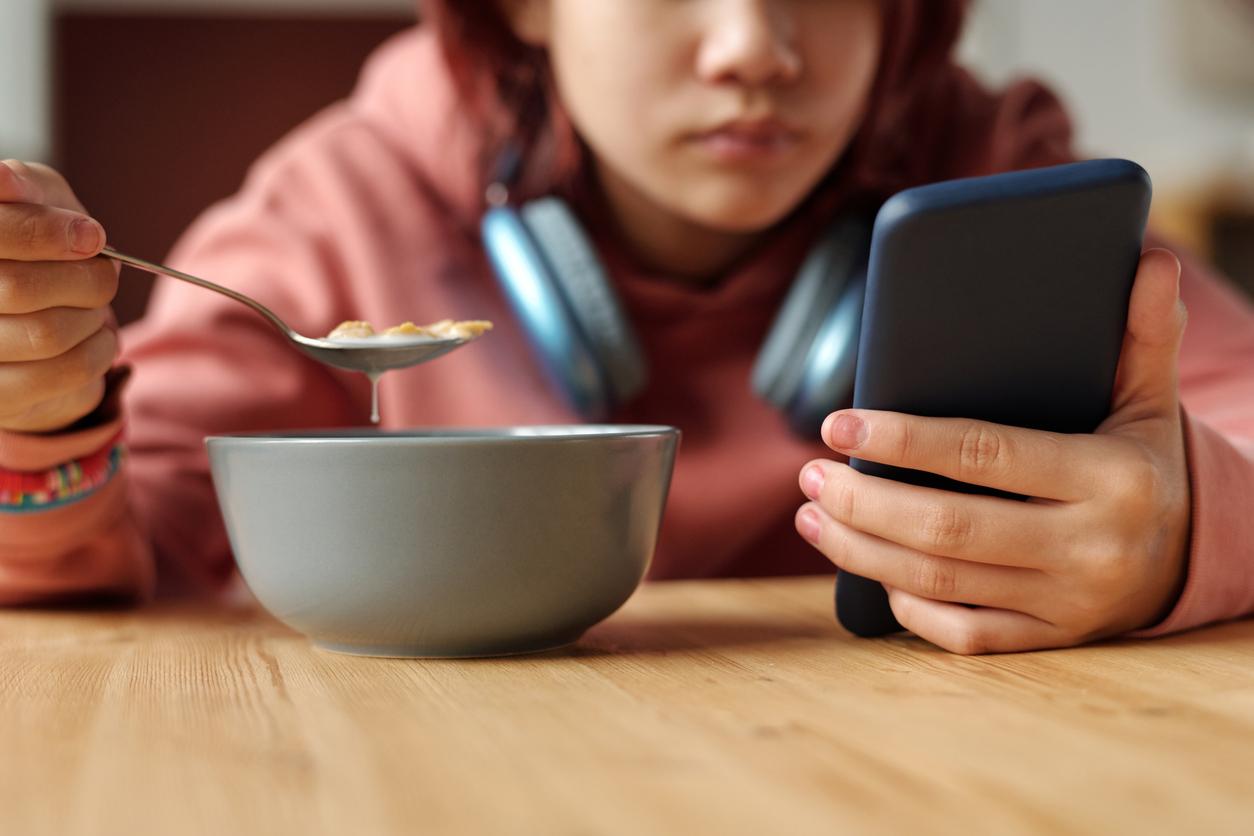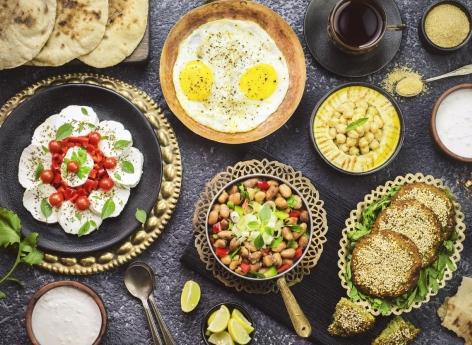
Avoid sugar and sweets
Every month, that menstruation. Difficult, especially if you have a lot of abdominal pain, cramps, diarrhea or bloating around that period. Not to mention your mood and emotions. Unfortunately, there is no scientifically proven diet or nutritional advice that can prevent the symptoms. However, we have some tips for you that can help you.
1. Drink a lot
Just before your period, your body can retain a lot of fluid. This makes you feel a bit bloated and your weight is higher than normal. Don’t be alarmed, it’s moisture. Once you have lost that fluid again, your weight will recover. It may sound crazy, but the best way to get rid of fluids is to drink plenty of fluids. You have to put your kidneys to work. Drink mostly water and tea. An extra cup of coffee wouldn’t hurt either. Make sure you reach 1.5 to 2 liters per day. Eating special diuretics is of no use.
2. Eat a lot of vegetables
This is also a tip for your fluid balance: eat large portions of vegetables. Vegetables support your fluid balance in a natural way. They contain a lot of moisture and potassium: a mineral that is important for a good fluid balance. Make sure your plate is half filled with vegetables in the evening and also have vegetables at lunch or as a snack in between (candy tomatoes, carrots, snack cucumbers). And a bonus: vegetables are packed with vitamins and minerals, contain a lot of fiber and plenty of antioxidants. All good nutrients that ensure that you feel good about yourself.
3. Save on salt
Those who eat salt often retain more water. So make sure you don’t eat too much salt in the days around the menstrual period. You often unwittingly eat saltier than you think. Snacks, chips and nuts are often highly salted. And most ready-to-eat products are also packed with salt. Think of pizzas, soups, sauces and other things from packages and bags. Try cooking yourself from fresh ingredients. This way you automatically consume less salt.
4. Choose high fiber
Fibers from vegetables, fruit, nuts, legumes and whole grains are good for your intestines. They keep your intestines working and your stools healthy. Also during menstruation when the hormones interfere with or overstimulate the bowel function. Do you suffer from constipation or diarrhoea? If your intestines work normally, you will also have less problems with your intestines during menstruation.
5. Use fermented products
Sauerkraut, yogurt, kefir, kombucha, ginger beer…. these types of fermented products contain substances that are good for the functioning of your intestines. They ensure that the good bacteria in your gut multiply. And that in turn helps for the functioning of your intestines and your health.
6. Eat Iron Rich
Iron is a mineral that you can easily become deficient in if you have a heavy menstrual period. You lose iron with the blood. Women who are menstruating therefore need 16 mg of iron per day, always on days when you are not menstruating. A portion of meat provides you with a lot of iron. Green vegetables, legumes, nuts and whole grain products also contain iron. Are you vegetarian or do you often eat vegan? Make sure that the meat substitutes you use do contain iron.
|
Food |
portion |
iron content per serving (in mg) |
|
Mussels (cooked) |
100 grams |
3.9 |
|
Beef rib (fried) |
100 grams |
3.6 |
|
Tartare (baked) |
100 grams |
3.5 |
|
Ground beef (fried) |
100 grams |
3.2 |
|
Apple syrup |
20 grams |
2.5 |
|
Steak (fried) |
100 gram |
2.8 |
|
tofu (prepared) |
100 grams |
2.2 |
|
Swiss chard (cooked) |
1 serving spoon |
2.0 |
|
Tempeh (prepared) |
100 grams |
2.0 |
|
raspberries |
dish |
1,5 |
|
Purslane (cooked) |
1 serving spoon |
1,5 |
|
Turnip greens (cooked) |
1 serving spoon |
1,5 |
|
Pork fricandeau (fried) |
100 grams |
1,5 |
|
arugula |
50 grams |
1.3 |
|
Egg |
1 piece |
1.2 |
|
Spinach (cooked) |
1 serving spoon |
1.2 |
|
Salted herring |
1 piece |
1.1 |
|
Spread liver sausage |
20 grams (on 1 slice of bread) |
1.1 |
|
Garden peas (cooked) |
1 serving spoon |
1.0 |
|
Olives |
dish |
1.0 |
|
berries |
dish |
1.0 |
|
Rye bread |
1 slice |
0.9 |
|
Nuts mixed |
hand |
0.9 |
|
Legumes (cooked) |
1 serving spoon |
0.9 |
|
Whole wheat pasta (cooked) |
1 serving spoon |
0.8 |
|
Whole grain bread |
1 slice |
0.7 |
|
Chicken breast (fried) |
100 grams |
0.7 |
7. Avoid sugar and sweets
Especially if you suffer from premenstrual syndrome (PMS), you can have a huge need for sweets. You make it a lot easier on yourself if you always avoid sugars and sweets as much as possible. This ensures more stable blood sugars and you get rid of the sweet taste. Also, you probably don’t have the sweets so readily available anymore. Do you still want to take something: eat fruit or choose chocolate, as pure as possible.
8. Eat 3 meals a day
Eating a meal that is sufficiently filling on a regular basis also prevents you from giving in to hunger pangs during or in the period before your period. Provide meals that contain a lot of vegetables and sufficient proteins and fats (don’t be afraid of fat) because you can keep it full for a long time and limit your energy dips in between. This way you will suffer less from periodic binge eating.
















